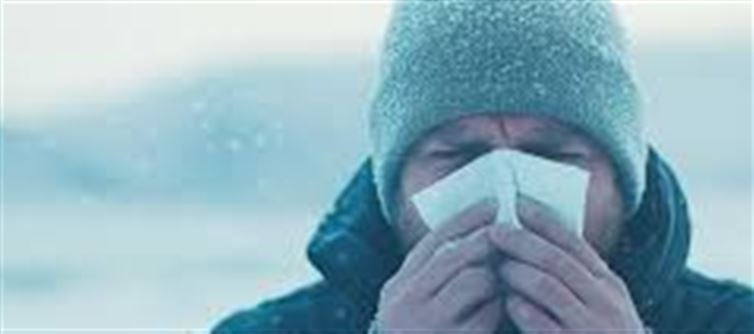
Winter is supposed to be cozy and joyful, but for many, it also brings a frustrating surge in allergy symptoms. Sneezing, coughing, dry or scratchy eyes, and nasal congestion can make the season uncomfortable and even affect your daily life. Here’s why allergies tend to get worse in winter and how you can protect yourself.
1 Indoor Allergens Take Over
During cold months, we spend more time indoors, where dust mites, pet dander, mold, and cockroach droppings thrive. Poor ventilation and heating systems can worsen indoor air quality, triggering allergy flare-ups.
2 Dry, Cold air Irritates Airways
Winter air is cold and dry, which can dry out your nasal passages and eyes, making them more sensitive and reactive. This dryness also thickens mucus, causing congestion and discomfort.
3 Mold Growth in Damp Areas
Damp basements, bathrooms, and kitchens become breeding grounds for mold in winter. Mold spores are a common allergen that worsens symptoms like coughing, sneezing, and wheezing.
4 Heating Systems Spread Allergens
Central heating and space heaters circulate dust and allergens throughout your home, aggravating allergy symptoms. Without proper air filters or regular cleaning, your indoor air can become a minefield of triggers.
5 Cold Viruses Mimic Allergy Symptoms
Winter cold and flu season overlap with allergy season, making it harder to differentiate between infections and allergies. Viral infections can also worsen inflammation in your airways, increasing allergy sensitivity.
Doctor’s Tips To Stay Safe and Comfortable This Winter:
· Keep Your home Clean: Regularly dust and vacuum using a HEPA filter vacuum cleaner. Wash bedding and curtains to reduce dust mites.
· Control Humidity: Use a dehumidifier to keep indoor humidity around 30-50% to prevent mold growth.
· Use air Purifiers: HEPA air purifiers can help reduce airborne allergens.
· Protect Your Airways: Use a saline nasal spray to keep nasal passages moist and avoid dryness.
· Limit Pet Exposure Indoors: If you’re allergic to pets, restrict their access to bedrooms and wash your hands after petting.
· Stay Hydrated: Drink plenty of fluids to keep mucus thin and reduce congestion.
· Consult Your Doctor: Allergy medications, nasal sprays, or immunotherapy might be necessary for severe cases.
❄️ Don’t let winter allergies steal your joy! With these tips, you can breathe easier and enjoy the season fully.
Disclaimer:
The views and opinions expressed in this article are those of the author and do not necessarily reflect the official policy or position of any agency, organization, employer, or company. All information provided is for general informational purposes only. While every effort has been made to ensure accuracy, we make no representations or warranties of any kind, express or implied, about the completeness, reliability, or suitability of the information contained herein. Readers are advised to verify facts and seek professional advice where necessary. Any reliance placed on such information is strictly at the reader’s own risk.




 click and follow Indiaherald WhatsApp channel
click and follow Indiaherald WhatsApp channel